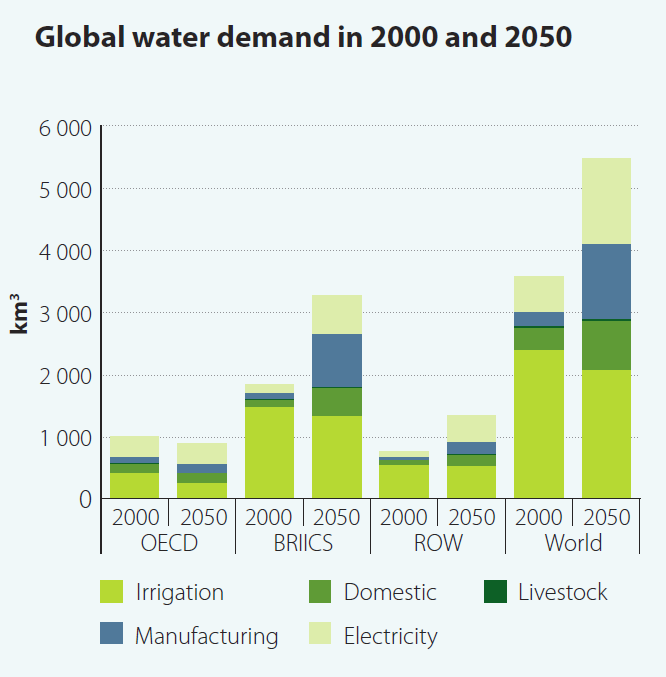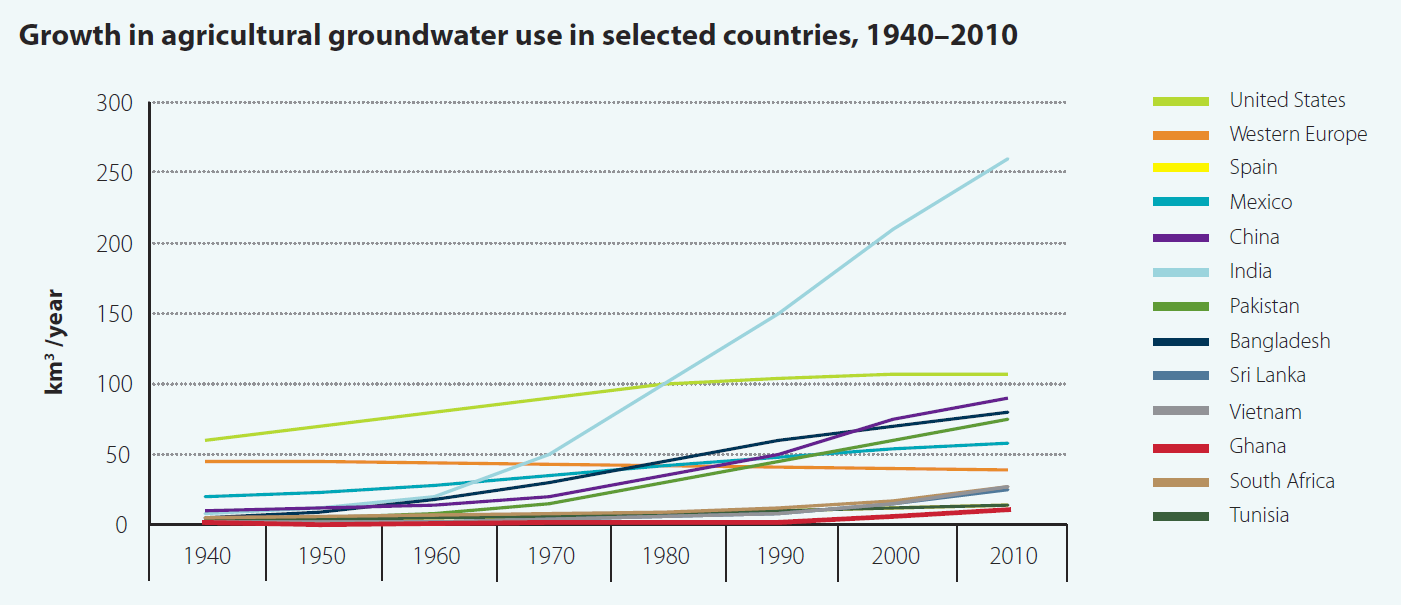In just 15 years the world could suffer a catastrophic global water crisis, the United Nations (UN) warn in its annual World Water Development Report. The UN report forecasts that global water demand will increase by 55 percent by 2050. If current trends of water usage continues the world could suffer a 40 percent shortfall in water supply as early as by 2030 – which could potentially have catastrophic consequences.
Groundwater supplies are quickly diminishing and the report estimates that 20 percent of the world’s aquifers are currently over-exploited. There is an urgent need to manage water more sustainably, the UN report concludes. If we fail to do this, the competition for water will increase and lead to “significant impacts” on both the economy and human well-being. It will also increase the risk of conflicts, the UN report warns.
Safe drinking water supplies will continue to dwindle as long as water pollution continues to be ignored and go unpunished by local authorities, and water use remains wasteful and unregulated, as it unfortunately does in many nations, the UN says in its report. In order to mitigate this water crisis, the UN is urging politicians, communities and industries to rethink its water policies and to make a greater effort to conserve water.

The 55 percent increase in water demand is mainly due to growing demands from manufacturing, thermal electricity generation and domestic use. But due to increasing population numbers and consumption levels, agriculture will also need to substantially increase its food productions to keep up with demand – and this will in turn increase water usage.
“By 2050, agriculture will need to produce 60 percent more food globally, and 100 percent more in developing countries […] global water demand for the manufacturing industry is expected to increase by 400 percent from 2000 to 2050, leading all other sectors, with the bulk of this increase occurring in emerging economies and developing countries,” the UN report said. “Unless the balance between demand and finite supplies is restored, the world will face an increasingly severe global water deficit.”

Considering that current demands for water in the agriculture sector is already unsustainable, this will be a difficult task. The agriculture sector must increase its water use efficiency by reducing water losses in the production process, and to “increase crop productivity with respect to water” availability and demand, the report says.
The UN report also points to two worrying global trends that are converging: climate change and growing economic development in poor developing countries. This convergence will especially “intensify the water insecurity of poor and marginalized people in low income countries.”
“Water resources are a key element in policies to combat poverty, but are sometimes themselves threatened by development,” said UNESCO Director-General, Irina Bokova. “Water directly influences our future, so we need to change the way we assess, manage and use this resource in the face of ever-rising demand and the over exploitation of our groundwater reserves.”



Recommended Comments
Join the conversation
You can post now and register later. If you have an account, sign in now to post with your account.